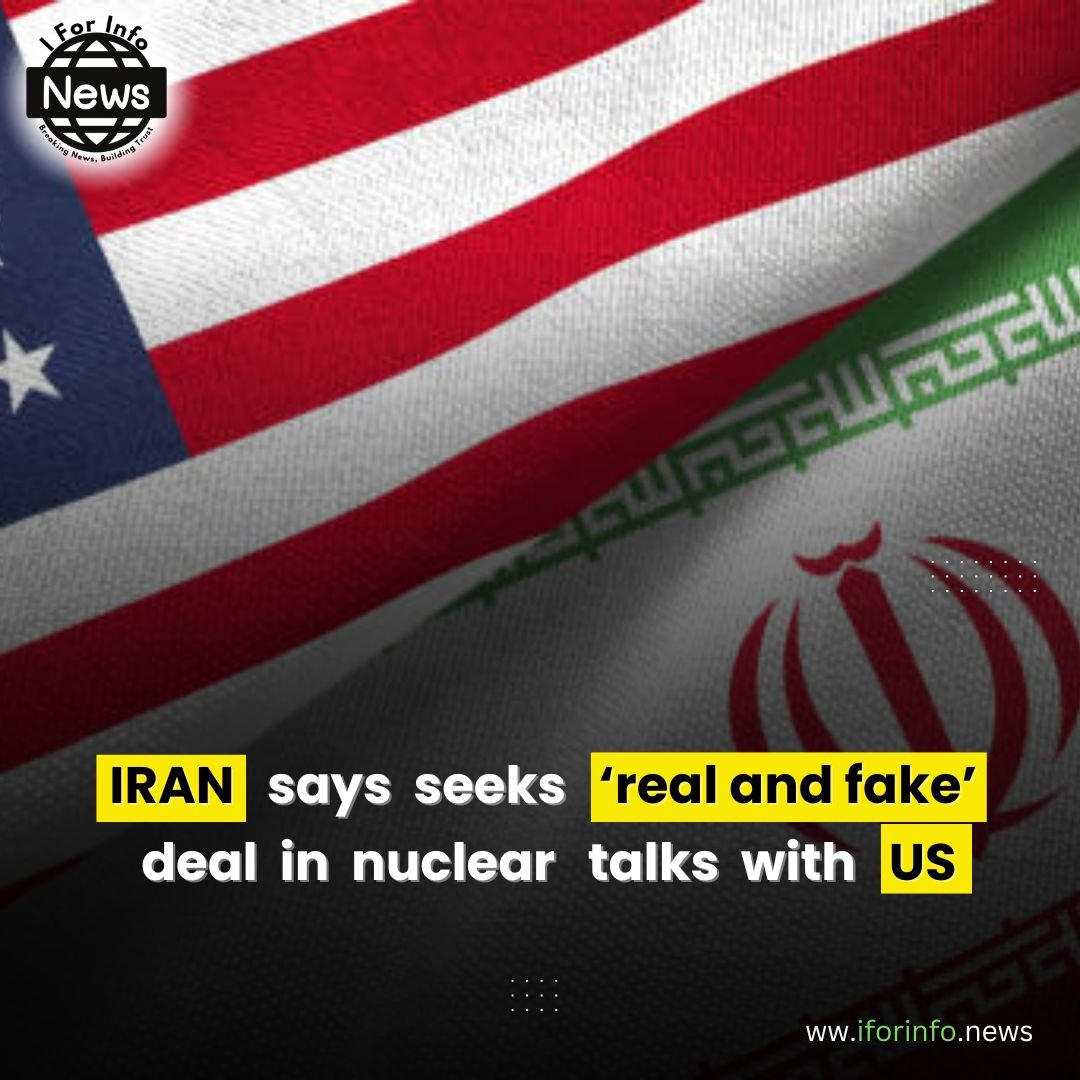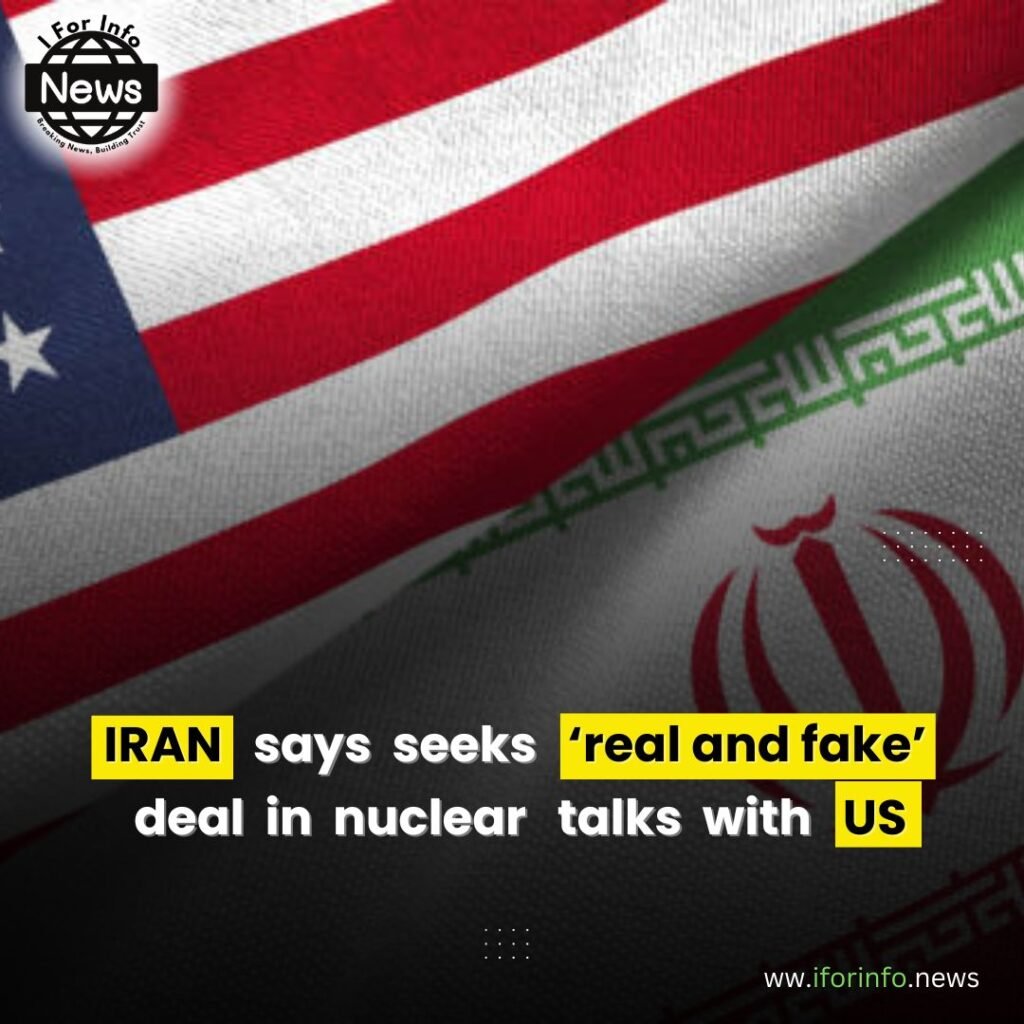Iran is pursuing a “genuine and equitable” agreement with the United States regarding its nuclear programme, a senior adviser to Supreme Leader Ayatollah Ali Khamenei stated on Friday, ahead of a potentially pivotal round of diplomatic talks set to take place this weekend in Oman.
Longtime rivals Iran and the United States are scheduled to engage in talks on Saturday in Muscat, with the goal of reaching an agreement on Tehran’s nuclear programme.
Last month, US President Donald Trump sent a letter to Iran’s Supreme Leader Ayatollah Ali Khamenei, urging the initiation of negotiations and warning of potential military action should Tehran decline.
“Tehran isn’t interested in putting on a show or engaging in superficial dialogue,” said Khamenei’s adviser Ali Shamkhani in a post on X. “We are seeking a genuine and fair agreement, and significant, actionable proposals are already on the table.”
Shamkhani confirmed that Iranian Foreign Minister Abbas Araghchi would lead the delegation to Oman, armed with full authority to conduct indirect talks with the US. He added that if Washington demonstrated sincere intent, the negotiations could proceed in a “clear and smooth” direction.
In the run-up to the negotiations, tensions have escalated between Iran and the United States, with both sides trading sharp warnings. President Donald Trump reaffirmed that military action remained “absolutely” on the table should the talks collapse.
In response, Iran threatened to expel UN nuclear inspectors — a move the US swiftly condemned as a potential “escalation.”
Tehran has repeatedly denied any intention to develop nuclear weapons.
On Friday, Iranian Foreign Ministry spokesperson Esmaeil Baqaei stated that Iran was “approaching diplomacy with sincerity, vigilance, and genuine intent.” In a post on X, he added, “The US should recognise the significance of this decision, especially in light of its continued hostile rhetoric.”
The talks were initially announced by President Trump during Israeli Prime Minister Benjamin Netanyahu’s visit to Washington.
While Trump stated that the discussions would be high-level and “direct,” Iran maintained that they would be conducted “indirectly.”
It later became clear that Iranian Foreign Minister Abbas Araghchi and US Special Envoy Steve Witkoff would lead the negotiations in Oman, with the country having previously served as a mediator in Iran’s nuclear matters.
Witkoff traveled to Russia today for discussions with President Vladimir Putin on Ukraine, a matter that also concerns Iran, given the close ties between the two nations.
On Tuesday, expert-level consultations on nuclear issues took place in Moscow, involving officials from Russia, China, and Iran, according to Russia’s foreign ministry.
Ahead of the Oman talks, the US imposed additional sanctions targeting Iran’s oil sector and its nuclear programme.
Iran’s nuclear agency head, Mohammad Eslami, downplayed the impact of US sanctions, stating, “They imposed maximum pressure with various sanctions, but they were unable to prevent the country from advancing.” He added that the US still believes it can halt Iran through threats, intimidation, psychological tactics, and “stupid actions.”
Since President Trump’s return to office in January, Iran has faced growing international attention, and its regional allies have suffered significant setbacks. These include Hamas and Hezbollah, both of which have experienced heavy losses in conflicts with Israel following the October 7, 2023 attack.
Iran and Israel have engaged in direct attacks for the first time since Israel began its offensive on Gaza. Additionally, Iran’s long-time ally, former Syrian president Bashar al-Assad, was ousted in December.
Iran’s leadership has expressed strong concerns over the potential failure of upcoming nuclear talks with the United States. Ali Shamkhani, a senior advisor to Supreme Leader Ayatollah Ali Khamenei, warned that if military action is threatened by the US, Iran could take drastic measures. These could include expelling inspectors from the UN’s nuclear watchdog, the International Atomic Energy Agency (IAEA), and relocating enriched uranium to secure, undisclosed locations.
Ahead of the talks, hardline Iranian media expressed skepticism about their prospects. The Kayhan newspaper, known for its conservative stance, criticized the US for imposing new sanctions, labeling it an “enemy of Iran and its people,” and dismissed the idea of negotiating sanctions relief as a “failed strategy.” Meanwhile, reformist outlets took a more optimistic view, focusing on the potential for economic growth and investment opportunities that could arise from successful negotiations.
During his first term in office, President Donald Trump unilaterally withdrew from the 2015 nuclear deal, officially known as the Joint Comprehensive Plan of Action (JCPOA), and reimposed severe sanctions on Iran. This move has been a point of contention and is central to the ongoing diplomatic tensions between the two nations.
Tehran complied with the Joint Comprehensive Plan of Action (JCPOA) for a year following Washington’s withdrawal. However, it gradually began to scale back its commitments afterward.
In its most recent quarterly report from February, the International Atomic Energy Agency (IAEA) indicated that Iran possessed approximately 274.8 kilograms of uranium enriched to up to 60%, with weapons-grade uranium being around 90%. Additionally, Iran has expanded its centrifuge capacity.




